
I’ve long tried to be an optimist about Pakistan. The reason isn’t that I believe things here are fine. They’re a mess. But I’ve always believed our mess is solvable.
My own set of solutions would include (as a top 10): Raising our shamefully low tax revenues; reducing the defence budget (especially money spent on shiny, imported and easily embargoed toys like F-16s); increasing the development budget (education, water and electricity, in particular); beefing up the police and lower courts; cracking down much harder on militants; phasing out American (and ideally all) aid; making more of an effort to pursue peace with India (not easy, I know); actively campaigning to end foreign meddling in Afghanistan (including our own); giving more power to the provinces; refocusing judicial reform on speedy and unbiased justice for all, rather than on the balance of power in Islamabad; and forcing political parties to become internally democratic.
Many reasonable Pakistanis might disagree with me over items on this list. Some of what I advocate could well be ill-considered. But nothing on my list cannot be done. None of it is impossible or beyond Pakistan’s capabilities. Hence, my optimism doesn’t require me to reject reality.
My optimism does, however, require that Pakistanis be somewhat free to speak. Only by expressing themselves can Pakistanis articulate their own lists of national priorities, debate them and call for them to be implemented. When a speeding train is hurtling down the wrong track towards a cliff, optimism lies in the hope that passengers will raise an alarm in time for a conductor to pull the brake.
Silence kills that hope. It kills optimism.
And lethal efforts are under way to spread silence in Pakistan.
Half a year after I moved back, over 200 people were killed or wounded in simultaneous attacks on Ahmadis in Lahore. Few politicians openly condemned the massacre. The message was clear: Those deemed to be non-Muslims can be silenced in Pakistan. Five per cent of our fellow citizens will be denied their voice.
A little over a year after my return, Punjab Governor Salmaan Taseer was gunned down, followed weeks later by Minorities Minister Shahbaz Bhatti. Again, public condemnations were limited. And again, the message was clear: Those who seek to change laws in ways deemed to be non-Muslim can be silenced in Pakistan. The substantial swathe of Pakistanis who are socially liberal (a tenth of our population? a fifth? a third?) will be denied their voice.
And now, a year and a half after my return, journalist Saleem Shahzad has been assassinated. He was tortured, his body left in a canal. We do not know who killed him. But we do know what he wrote in the Asia Times on May 27: That the Pakistan Navy faces infiltration by al Qaeda sympathisers, that it has purged some of these elements, that the attack on PNS Mehran was in retribution for these purges and that it was carried out with insider help.
Days later, he was dead.
What message is sent by killing a man who writes such things? Its style represents a shift. This is a communication confident (or desperate) enough to no longer seek to cloak itself in a language of Muslim and non-Muslim, of sectarian groups or of religious symbols. And its substance appears to be the following: Those who speak of sensitive security matters can be silenced in Pakistan. Hereafter, it suggests, every Pakistani will be denied their voice.
For we all speak of sensitive security matters. We speak of drones and India and terrorists and Abbottabad and America and nukes. We do it all the time. As well we should: We are being slaughtered in our thousands, over 30,000 Pakistanis in the last decade alone, and our country is grievously undermined by violence. We know things must change. And we need our journalists to help us figure out how, by telling us, underneath all the conspiracy theories and secrecy, what is actually going on.
The challenges facing Pakistan require a citizenry that is more engaged with security policy, not less, and a security establishment that is more open with and responsive to its citizenry, not less. The yawning gap between our people and our policies has allowed self-destructiveness to fester. It has made our Pakistan a blood-drenched contradiction: Taking aid, hating dependency; cooperating with drone strikes, proclaiming sovereignty; buying warplanes, drowning in floods.
We do not have a security state, we have an insecurity state.
We will only get better if we close this gap, and we will only close this gap if we speak. So we must urgently ask why journalists who write on security issues are dying, and who is killing them. We must demand that it stop. We must reject an enforced national silence that encourages our country to continue on its present trajectory, ever downhill, ever faster, towards the cliff, to the despair of those of us who, despite everything, still love Pakistan, and to the misfortune of all who call this wounded land of tremendous potential home.
We must also persevere in looking for reasons for optimism. They exist. Courageous journalists are raising their voices. The media is disseminating information ever more widely. It may be that the balance of power in our state is finally, slowly, shifting towards our people. The outcome is uncertain, but silencing Pakistan has yet to succeed.
Published in The Express Tribune, June 4th, 2011.
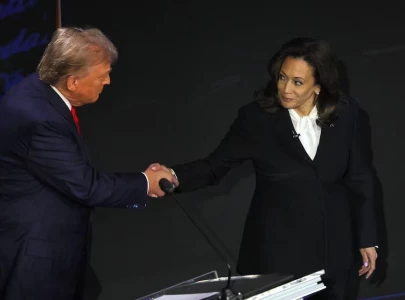




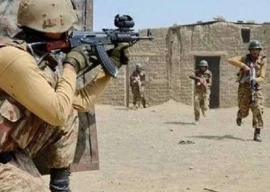
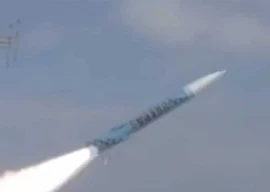
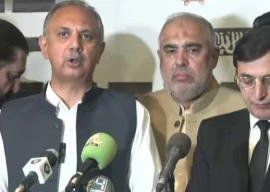
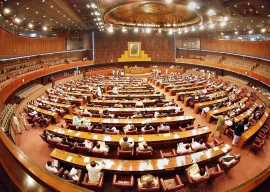

1726140338-01730723472-0/Untitled-design-(42)1726140338-01730723472-0-270x192.webp)




1730706072-0/Copy-of-Untitled-(2)1730706072-0-270x192.webp)
COMMENTS (44)
Comments are moderated and generally will be posted if they are on-topic and not abusive.
For more information, please see our Comments FAQ